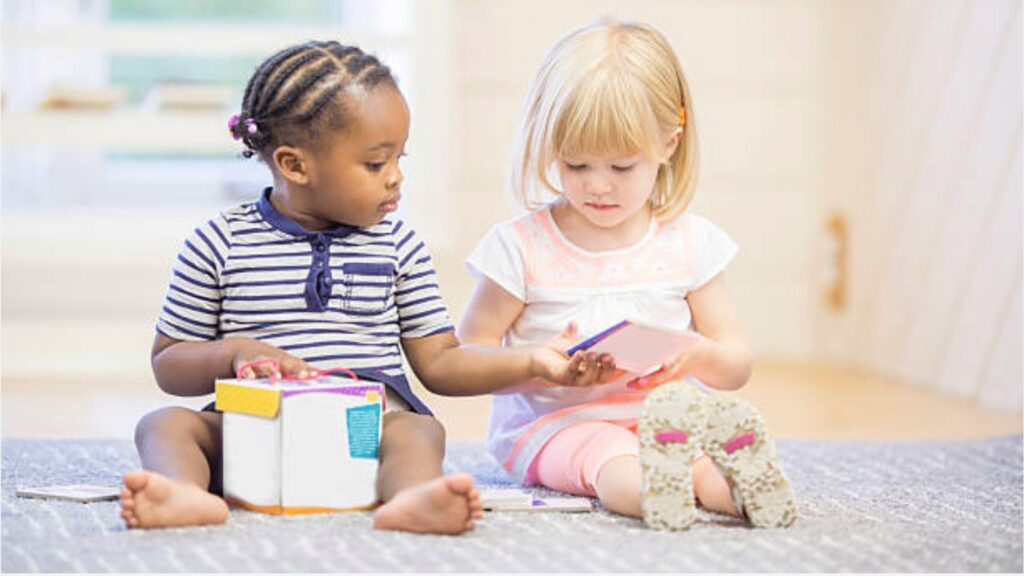The Importance of Developing Children’s Social Skills in The Early Years
Have you ever seen a construction site where the ground gets dug deeply and a solid, strong foundation stone is laid? The truth is, the stronger the foundation is, the taller the building on which it is to be built can be built. Without a strong foundation, the building cannot go higher and sustain.
In education, early years learning is like laying a solid foundation. During your child’s brain’s most formative years, what is being deliberately taught dictates the quality and the strength of this foundation. At CEFA, we create a strong foundation in the early years by using building blocks that teach children social skills. Some of those building blocks include attention and concentration, using and understanding language, non-verbal communication skills, self-regulation and planning and sequencing, to name a few.
Social skills are deeply and closely linked to career success, stress management, productivity, dealing with conflict, independence, resilience as well as emotional well-being in the long run.
Teaching effective social skills is core to our curriculum at CEFA. Through our proprietary curriculum, children at CEFA have a compelling advantage of acquiring strong social skills at an earlier age, and this is important because developing social skills in kids prepares them for a lifetime of healthier interactions in all aspects of life.
This is especially important for children in the early years as we teach them empathy so they can understand and care how others feel. CEFA students have four years to learn what it’s like to care about something or someone. As an example, the four-year-olds at CEFA read to the CEFA babies.
Social skills also help with conflict resolution for kids, an important social skill to have when they’re trying to establish and maintain friendships or positive interactions with others.
Teaching Social Skills at Home
Social play is important for your child’s development to help understand turn-taking, cooperation, and appropriate play with toys. You can do this easily at home with your child.
Encourage your child to show their emotions and help them identify emotions in others by asking questions. This will also help create empathy, so your child recognizes how other children are feeling in certain social situations. You can practice role-playing and be a good role model as well. This includes teaching and using good manners.
It’s important to remember that social skills need ongoing refinement as children grow older. Social skills can be learned and strengthened with practice and concerted efforts. They aren’t something you’re born with, or you aren’t.
Remember to encourage social skill development at home and have fun! Scavenger hunts and playing a game have a purpose!

Social Skills and Their Role in Getting Kindergarten-Ready
Whether they are prepared for it or not, when your child turns five, they will be introduced to a place where they will have new peers, exposure to a larger group of kids and varying ages, new teachers, a new schedule, a new location, and more independence. Their ability to navigate these new social structures will be dependent on how much social prowess they’ve garnered so far in their lives. This is very much something that can be fostered and developed by practicing and talking to your child.
Children who have had exposure to social skills and soft skills development in the early years have an influential advantage during a very significant transitional period of their lives.
Choose CEFA and Give Your Child a Socially Strong Start!
At CEFA, your young children are introduced to different types of core social skills through our carefully structured programs including structured social plays. Students learn and sharpen the core life skills effectively while having lots of fun. Some of the kids’ social skills that are taught at CEFA include, but are not limited to, the following:
- Basic Survival Skills: Listening effectively, comprehending important information, determining what is important and ignoring what is not, concentrating, personal space, successfully following directions.
- Interpersonal Skills: Sharing one’s thoughts and emotions in different settings to different audiences, initiating and joining conversations, empathizing, eye contact, taking turns talking, recognizing when to say thank you and apologize, good manners, non-verbal body language.
- Problem-Solving Skills: Understanding and comprehending the problem, approaching the issue from different angles, asking for help when needed, deciding what to do/appropriate action to take.
- Conflict Resolution Skills: Dealing with teasing and bullying, standing up for what is right, encouraging others, searching for a wise resolution, handling peer pressure, asking for help from appropriate adult figures.
Raising a child with strong social skills means that your child will have strong intrinsic values and motivation not only to go through challenges but also to come out of them stronger.
In the past, we have seen numerous cases of how a child’s social skills learnt at a young age get played out successfully later in life. Having strong social skills equips your child with confidence and resilience, helping them to adapt to new changes smoothly and successfully in this ever-changing world. Choose CEFA and give your child a socially strong start!
